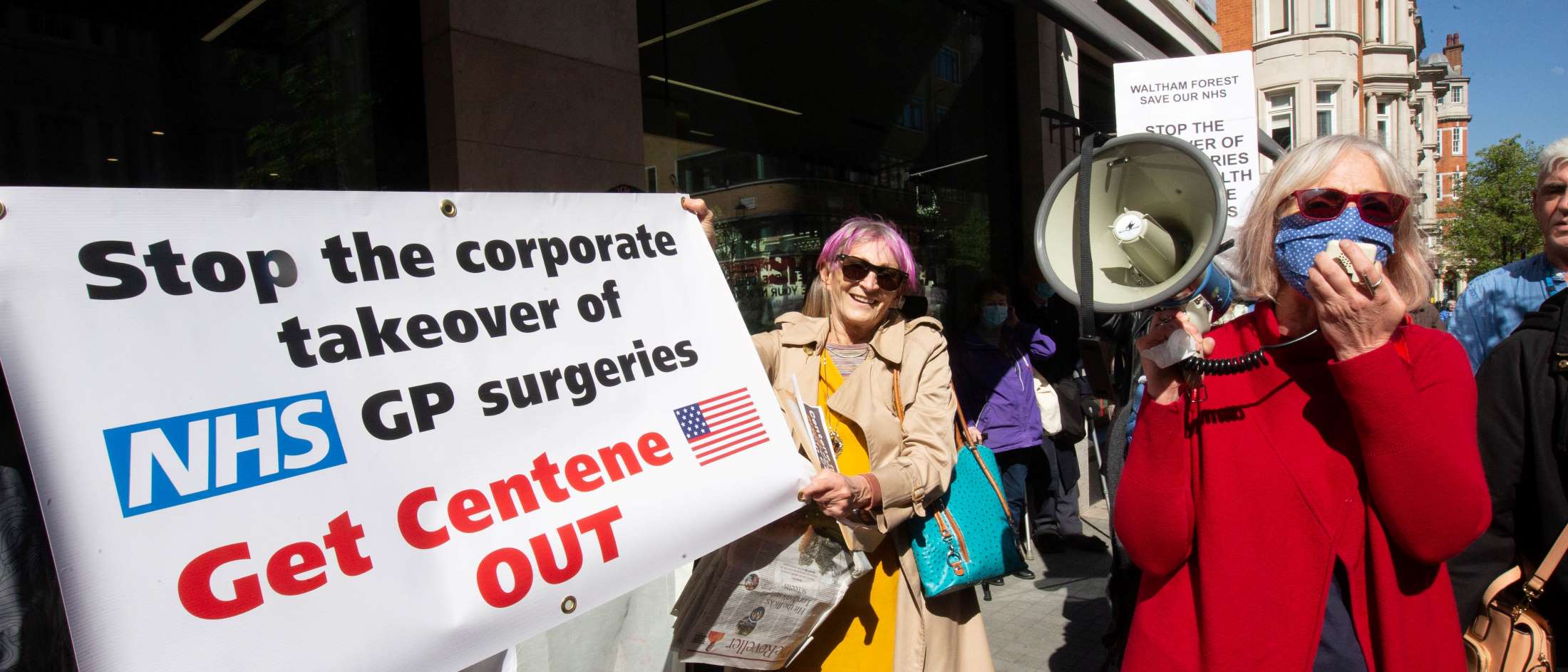More of the same?
NHS boss Simon Stevens has put forward an ambitious new NHS plan, Five Year Forward View, last week (October 23), which outlines ways in which the health service can become more sustainable in the future.
Stevens has called for an additional £8bn from Parliament by 2021 – far exceeding what any political party has pledged – with the assumption that the NHS can deliver £22bn in annual savings in five year’s time.
Unite head of health Rachael Maskell called the savings figures “impossible to deliver in five years” if, she said, “you are talking about a real improvement in health prevention, retraining and realigning the roles of NHS staff, together with integration of health and social care.
“In the last four years the NHS has been battered by the funding crisis resulting in £20bn being sucked out of the service during this parliament,” she added. “The picture remains very bleak and it is clear that the plan will not plug the predicted £30 billion financial black hole by 2020/21.”
The report has recommended placing greater emphasis on local initiatives to deliver the savings and improve care, but Colin Cram, a public sector consultant, has confirmed that the savings needed will inevitably mean major changes to health services.
“The various models that have been described will deliver some benefits. However the history of the NHS shows that while there are some great local initiatives these are rarely taken up widely,” he explained in a Guardian op-ed.
“The last thing the NHS needs is yet another major reorganisation,” he added. “There is no chance that any political party will give the NHS anything like an extra £8bn a year, so we should expect some radical surgery to the services being provided.”
Elephant in the room
Stevens appeared on BBC Radio 4 to answer questions about the plan, many of which came from audience members concerned about privatisation.
But he managed to side-step nearly all of the most hard-hitting questions, a point that host Sarah Montague made sure to highlight. Still, the NHS boss persisted in giving convoluted answers.
Stevens admitted support of private finance initiatives (PFIs), which will ultimately drain the health service of hundreds of billions of pounds and has put 22 NHS trusts at risk.
But the health service chief executive said PFIs were instrumental in building modernised hospitals throughout the country, while conspicuously failing to mention that building these hospitals could have been accomplished much more cheaply had they been financed by the government.
On the subject of TTIP, a potential US-EU trade agreement that may open up the NHS to an even greater onslaught of privatisation, Stevens again evaded the question, saying that his “commitment was to the NHS.”
Unite general secretary Len McCluskey was particularly incensed by the secretiveness surrounding TTIP and whether health would be included.
“The government has spent months trying to hide or even deny that the NHS was in the scope of TTIP now it transpires it sought and received legal advice on the trade deal. It’s extremely worrying that the department of health is refusing to release it,” said McCluskey.
When host Montague mentioned poor pay in the health service, Stevens was again vague, saying pay in the future would have to keep up with private sector levels to retain staff.
Maskell denounced this omission in the original five-year plan, saying, “[Stevens] makes precious little mention of the plummeting morale of the 1.3m workforce which is becoming a worrying pattern for this government with its continued failure to invest in skills, retention and development.”
Questionable past
While Stevens did emphasise that the NHS would not be further privatised in the future – saying that the privatisation debate was “an important debate but it’s not the main debate people want to be having, because there are much bigger questions we need answered” – his past history raises eyebrows.
In his previous role as “president of global affairs” of private American healthcare company UnitedHealth, a position he held until last year, he was also a founding figure in the Alliance for Healthcare Competitiveness, a pro-TTIP health lobby group that seeks the inclusion of health in the potential trade agreement.
As an Open Democracy article noted, Stevens acted as a spokesperson for the Alliance, and was once quoted in the Start Tribune, an American newspaper, as saying, “The worldwide need for health care in ageing populations will lead to a demand for goods and services that can drive sales of American insurance, medical devices and record-keeping technology.”
The Star Tribune, however, concluded, “The US health care system …is beset with skyrocketing costs and inefficiencies. Americans currently pay more for health care and rank lower in life expectancy and infant mortality than much of the developed world…The call to rebuild the US economy by selling pieces of what is generally considered a broken health care system struck some experts as a bit awkward.”
Real changes needed
Both Maskell and Unite national officer for health Barrie Brown argue that real changes are needed to create a sustainable NHS that stays true to its founding principles of free public health.
Agreeing with some of the ideas in the five-year plan, Brown said, “The proposals to provide seamless patient care and remove the current barriers between acute, primary and community are welcome.”
But he added, “This plan involves further use of privatised services and does not call for the repeal of the 2012 health and social care Act which has created many of the problems which Stevens seeks to address in the five year plan.”
Maskel agreed, saying, “The best investment that the government could make in the NHS is the immediate scrapping of the health and social care Act which has already squandered £3bn in a pointless reorganisation.”
 Like
Like Follow
Follow


